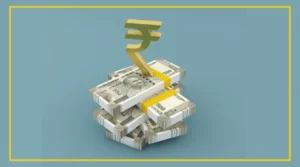New Delhi: The deadline to file income tax returns for the financial year 2023-24 and assessment year 2024-25 is nearing.
You have until July 31, 2024 to file your returns without incurring a penalty.
Taxpayers can conveniently file their returns on the income tax portal without any complications.
Additionally, if you need to pay taxes when filing your return, you can use a credit card for this purpose.
There are many benefits of paying tax through credit card
Taxpayers now have the option to pay their taxes using credit cards, a service introduced by the Income Tax Department for their convenience.
This method avoids the complications of bank transfers or cash transactions, providing instant payment confirmation via message.
Unlike payments through checks or bank transfers, which typically take longer, using a credit card can be quicker.
Additionally, taxpayers can earn reward points on their credit cards when making tax payments.
If you wish to pay your taxes using a credit card,
Here’s a step-by-step guide to help you through the process.
Here’s how you can pay tax using a credit card:
1. After filing your Income Tax Return (ITR) on the income tax portal, start by generating a tax payment challan.
This document specifies the amount of tax due and includes a challan serial number.
2. Choose the ‘Pay Tax’ option on the income tax portal, where you’ll find various payment methods,
including credit card payment.
3. Enter the details from the challan. Select the credit card payment option.
4. Provide your credit card details, including the card number, expiry date, and CVV code.
5. Once the payment is made using your credit card,
you will receive a confirmation message.
Here are key considerations when paying taxes using a credit card
Before using a credit card to pay taxes, it’s important to consider the associated fees and high interest rates. Ensure that you can comfortably manage the payment of your credit card bill after paying taxes.
Failing to do so could lead to additional costs in the form of high interest rates and penalties.

























